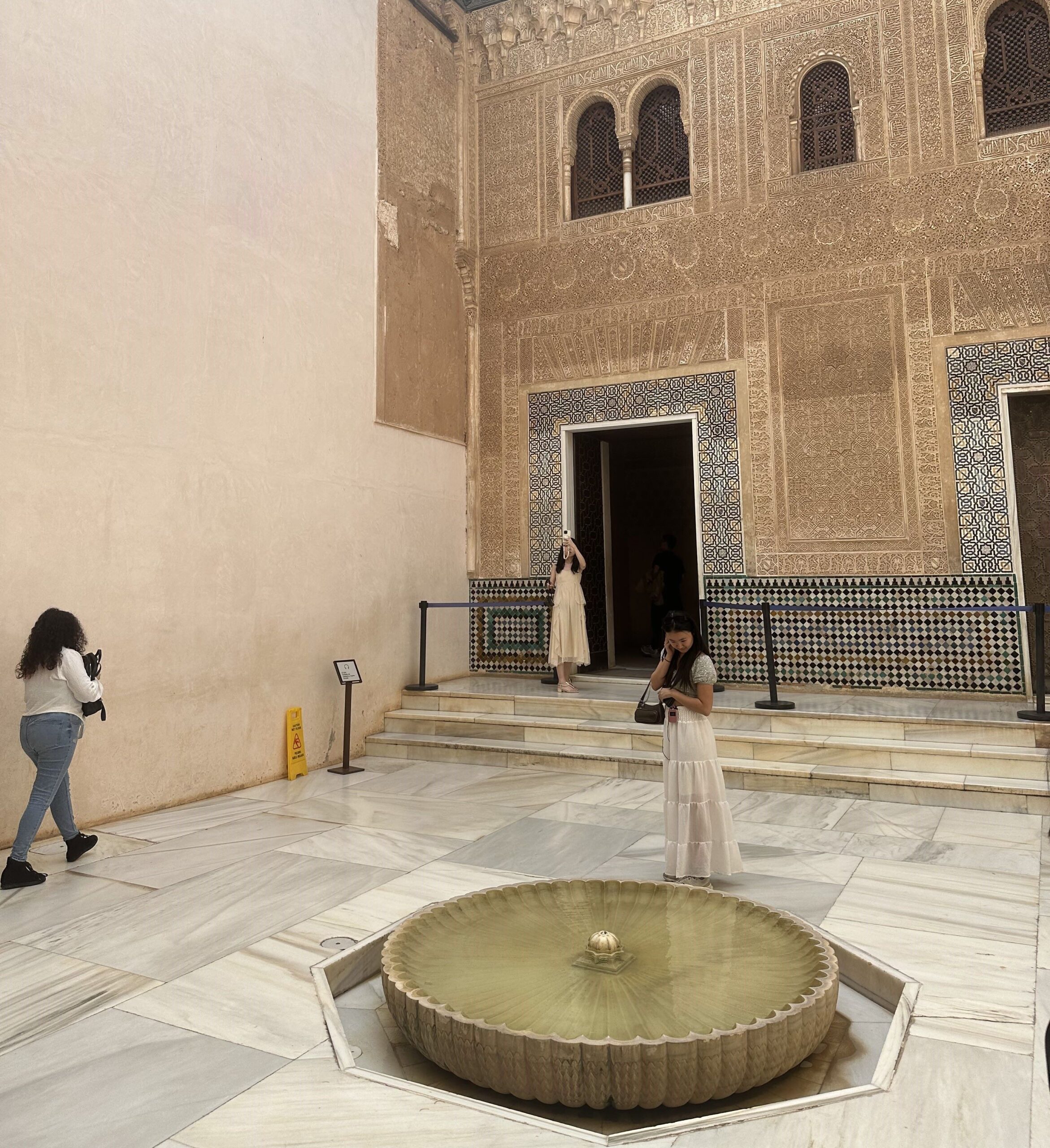¿How was abroad?
By: Yoonie Yang, Huntsman ’25

SA: CASA Seville: University of Seville
Yoonie, one of the Semester Abroad Global Correspondents, shares her experience abroad during the Spring 2024 semester. Follow along with the group of correspondents on our blog and look out for their images on the @pennabroad Instagram feed.
Although I recognize how silly it may sound, one of the questions I dreaded most while studying abroad was a simple one: “how is abroad going?” And since finishing up the semester and returning home to see familiar faces, it has transformed into “how was abroad?” It’s one of those questions that should warrant a multi-hour conversation of the experience yet typically has an expectation of a few sentences, if at max, a paragraph. It feels like a disservice to distill five months into a quick explanation but an equal negligence to give the equivalent of the “I’m good” to a “How are you?” version of abroad to loved ones genuinely interested in your semester.
I think my biggest qualm with this question, the root of this conflicted anxiety, lies with how we expect abroad to be, how it’s been presented to us. From abroad-returned seniors gushing about the “best time of their college career” to “I wish I could go back,” I hesitated to present a darker narrative to the status quo perfect one. How do I even begin to critique an experience that I know I should be beyond grateful to have had? Because I am grateful. So grateful. And, don’t get me wrong, I loved my abroad experience, but to paint it as one without faults, wouldn’t be true and would only continue to alienate the seemingly minority experience of struggles and homesickness that I’d be willing to bet is the majority.
What my semester in Sevilla, Spain gave me, cannot be sufficiently described in a short blog as this one. Prancing about the small streets of the Cathedral at midnight, with a gelato in hand in my sundress, sitting under the burning sun carefully chipping away at a second century Roman mosaic, jumping into the cold water of Cádiz, Spain and Faro, Portugal and Tenerife, Canary Islands, eating my weight in pasta and pizza in Italy: some scenes truly were my version of my 20s Mamma Mia movie. I’ll remember the people I got to experience it all with, from riverside picnics with program friends as the sun dipped below the horizon to dressing up in Féria clothing, riding Carnival rides, and stumbling over the steps of the traditional sevillano dance steps. The importance of mixing fun and work, intentionally adding relaxation into my daily routine, the simple joy of reading at a park, are all little gifts Sevilla has given me.
But, as I like to say, college life can be best described as “the highs are high and the lows are low.” Study abroad brings an entirely new meaning to that phrase. The highs are electric, an energy almost pulsating through your veins and simultaneously pumping your heartbeat–the very essence of feeling alive– while the lows are, well, quite low.
To start, Sevilla is pretty homogeneous, and as a result, quite racist (to put it bluntly). Getting almost daily unprovoked ni-haos, being bothered at cafes to only be probed about my ethnic background, and even having attempts to touch my face was exhausting to say the least. I felt perceived everywhere I went in the city I was meant to make a home out of for five months, causing me to even switch classes as the professor’s stares were beginning to make me uncomfortable. It felt foreign to walk around in my own skin, and I was reminded, once again, that identity is an incredibly fragile thing.
Yet, in my time of need, I missed my support system. Whether it was my family in Tennessee or the family structure of friends I had spent three years curating at Penn, my closest network of individuals I had learned to rely on were in a different time zone. And to add to it all, school was hard. I had opted to take classes in Spanish as the local Universidad de Sevilla, and it was really difficult. Due to the conversion of European grades to American grades, I found myself at the mercy of my professors and their willingness to give me an undeservingly high grade rather than be determined by my own competence. Barely grasping at what was being said in class, I felt stupid, which was a difficult emotion to sit with.
Clearly, my lows were very present throughout my study abroad, so why did I feel the need to omit them in my explanation of my semester? I’m trying to fix that.
I don’t regret my study abroad experience nor do I wish I could have a do-over. Overwhelmingly, the positives and the life takeaways outweigh the struggles. But the complexities of the experience go far beyond what meets the eye or a short conversation. So let’s try to be more transparent, intentional, and vulnerable in our narratives of abroad.
Sharing the highs and the lows.
The Semester Abroad (SA) program offers undergraduate students the opportunity to study in a new global community through extended study for a semester or year. Penn Abroad partners with top institutions around the globe and collaborates with Penn’s undergraduate schools to offer programs for students across academic disciplines.